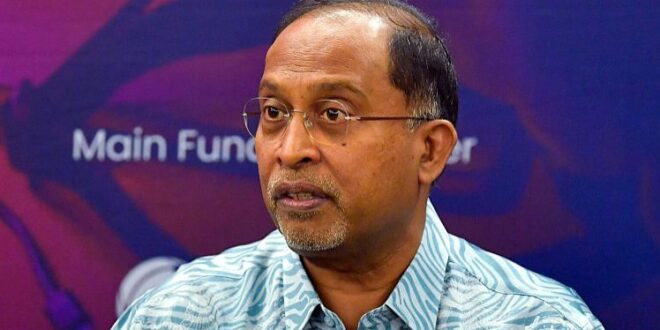PETALING JAYA: The cardiothoracic parallel pathway does not use the Joint Surgical Colleges Fellowship Examination (JSCFE) Cardiothoracic examination or the Fellowship of the Royal College of Surgeons (FRCS) international qualification, as quoted by some opponents, says the Malaysian Association for Thoracic and Cardiovascular Surgery (MATCVS).
The association’s executive council said in a statement yesterday that it uses “a totally unrelated and different examination and qualification”.
Therefore, MATCVS has told opponents of the parallel pathway to quit public criticisms after two ministers announced plans to move forward with amendments to the Medical Act 1971.
The body, which has been at the forefront of pushing for recognition of the cardiothoracic surgery parallel pathway programme, said it would abide by Higher Education Minister Zambry Abdul Kadir’s call for a “ceasefire” in the parallel pathway conflict.
“We fully agree with this and humbly request all parties with constructive criticisms of the Cardiothoracic Parallel Pathway training to engage with us directly for further information, clarification and discussion, and avoid further unnecessary and often inaccurate and wrong negative public statements that are causing confusion to both the medical profession and the public.
“The Cardiothoracic Parallel Pathway training and curriculum are quality assured by the Royal College of Surgeons of Edinburgh (RCSEd) and follow the same standards and requirements as the Malaysian National Postgraduate Medical Curriculum (NPMC) for Cardiothoracic Surgery and the UK Intercollegiate Surgical Curriculum for Cardiothoracic Surgery regulated by the UK General Medical Council (GMC).
“The exit examination is the RCSEd Joint Specialty Fellowship (JSF) examination in Cardiothoracic Surgery. This examination follows the same standards and format as the Intercollegiate Specialty Board examination conducted in the United Kingdom and regulated by the GMC.
“This is the same and the only Cardiothoracic exit examination and qualification used in Hong Kong and Singapore, fully recognised by both countries, and also in Brunei.
“The qualification awarded is the Fellowship of the Royal College of Surgeons of Edinburgh (FRCS Ed) in Cardiothoracic Surgery and is recognised by the UK General Medical Council (GMC) and also by Singapore, Hong Kong and Brunei.
“Graduates of the Cardiothoracic Parallel Pathway training have received confirmation from the GMC that they are eligible for specialist registration in the United Kingdom with this qualification,” the MATCVS said.
It added that the Health director-general must remain as the Malaysian Medical Council (MMC) president.
The training of specialists through the parallel pathway is a government initiative set up by the Health Ministry in 2014, having received the approval of the then health minister and relevant competent authorities at the time, to increase the number of specialists in the country, especially in public hospitals.
The training and qualifications were approved and recognised by the government and are quality assured by the Royal Colleges.
Earlier this month, four graduates from the parallel pathway training with the Royal College of Surgeons of Edinburgh in cardiothoracic surgery took legal action against the MMC for refusing to register them on the National Specialist Register (NSR).
This was the third known lawsuit against the MMC’s rejection of NSR specialist registration applications, in which judicial review applications were filed to legally challenge the independent regulatory body’s recent non-recognition of certain specialist training programmes.
The other two lawsuits were filed by a neurosurgeon with FRCS Ireland in neurosurgery and six pathology graduates in medical genetics from Universiti Sains Malaysia (USM), a local university.
The High Court has granted leave for both judicial review applications.
 BeritaKini.biz Berita Viral Terkini di Malaysia
BeritaKini.biz Berita Viral Terkini di Malaysia





